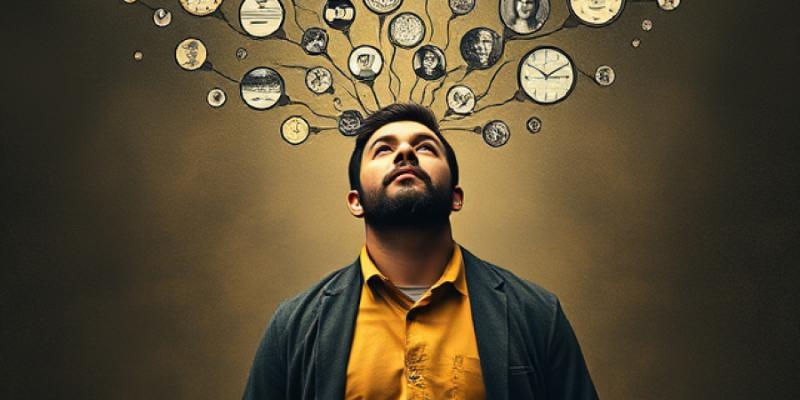How Does Mental Health Affect Men?
STORY / 29.01.25 / 4 min read
by Tom Garber

Mental health significantly impacts men, influencing various aspects of their lives, including emotional well-being, physical health, and social interactions. Despite growing awareness, many men continue to face challenges in acknowledging and addressing mental health issues due to societal stigmas and traditional gender norms.
Prevalence of Mental Health Issues Among Men
Research indicates that nearly 1 in 10 men experience depression or anxiety, yet less than half seek treatment. Alarmingly, men account for over 75% of suicides in many countries, highlighting the critical need for targeted mental health interventions.
Barriers to Seeking Help
Societal expectations often discourage men from expressing vulnerability, leading to reluctance in seeking help. A survey revealed that 40% of men have never spoken to anyone about their mental health, with 29% citing embarrassment and 20% pointing to negative stigma as primary reasons.
Impact of Untreated Mental Health Issues
Untreated mental health conditions can lead to severe consequences, including substance abuse and increased risk of suicide. Men are more likely to externalize stress through behaviors such as aggression or substance use, which can exacerbate mental health challenges.
Personal Stories Highlighting the Struggle
Personal narratives play a crucial role in shedding light on the profound impact of mental health challenges on men, offering real-life insights into the struggles many face but often do not speak about. One such story is that of former NRL star Sam Thaiday, who bravely opened up about his mental health battles. During a candid conversation, Thaiday revealed that he had contemplated suicide at the young age of 13. At that time, he was struggling with immense pressure and feelings of isolation, highlighting how even those who appear strong on the outside can be silently suffering. His story serves as a poignant reminder of the importance of having a trusted support system, whether it be family, friends, or professional help. Thaiday has since used his platform to advocate for mental health awareness, encouraging young men to speak up about their emotions rather than bottling them up. His experience underscores the necessity of breaking down societal stigmas that often prevent men from seeking help and emphasizes that no one should ever feel alone in their struggles.
Expert Insights
Psychotherapist Andrew O’Shaughnessy, a fully accredited professional with the Irish Association of Counselling and Psychotherapy, emphasizes that deeply ingrained societal expectations continue to enforce the notion that seeking help is a sign of weakness. With a BA Honours Degree in Counselling and Psychotherapy, his integrative therapeutic approach combines Humanistic, Cognitive Behavioral Therapy (CBT), Rational Emotive Behavior Therapy (REBT), Dialectical Behavior Therapy (DBT), and other evidence-based methodologies. O’Shaughnessy has extensive experience in community addiction services, where he has coordinated psychoeducation stabilization programs for individuals grappling with various addictions, mental health challenges, and life skills. He also facilitated family peer support groups, aiding families of those struggling with addiction. His diverse background includes roles in residential addiction treatment services and consultative positions during the COVID-19 pandemic, focusing on employee assistance and wellness policy development. His comprehensive experience underscores the critical need to challenge societal norms that discourage men from seeking help, advocating for a more supportive environment where men feel empowered to address their mental health concerns.
Dr. Noel Richardson, director of the National Centre for Men’s Health at South East Technological University (SETU), has extensive experience in men’s health at research, policy, and advocacy levels. He was the principal author of Ireland’s National Men’s Health Policy (2009) and co-author of the first European Union Report on Men’s Health (2011). Dr. Richardson emphasizes the need to challenge restrictive norms to normalize mental health conversations among men. His current research interests include monitoring the impact of policy and capacity-building measures in men’s health, exploring the relationship between men, masculinities, and mental health, and developing health promotion interventions targeted at ‘hard-to-reach’ groups of men in community and workplace settings. His work underscores the importance of creating an environment where men can openly discuss their mental health without fear of judgment, thereby promoting better mental health outcomes.
Recommended Reading
For those seeking to understand men’s mental health better, “I Don’t Want to Talk About It: Overcoming the Secret Legacy of Male Depression” by Terrence Real is highly recommended. This book delves into the unique challenges men face regarding depression and offers insights into healing and recovery.
Conclusion
Addressing men’s mental health requires dismantling societal stigmas, encouraging open conversations, and providing accessible support. By fostering an environment where men feel safe to express their struggles, we can work towards reducing the prevalence of untreated mental health issues and their associated consequences.
References:
• 40% of Men Won’t Talk to Anyone About Their Mental Health
• Men’s Mental Health: Social Determinants and Implications for Services
• NRL Legend’s Tragic Suicide Confession